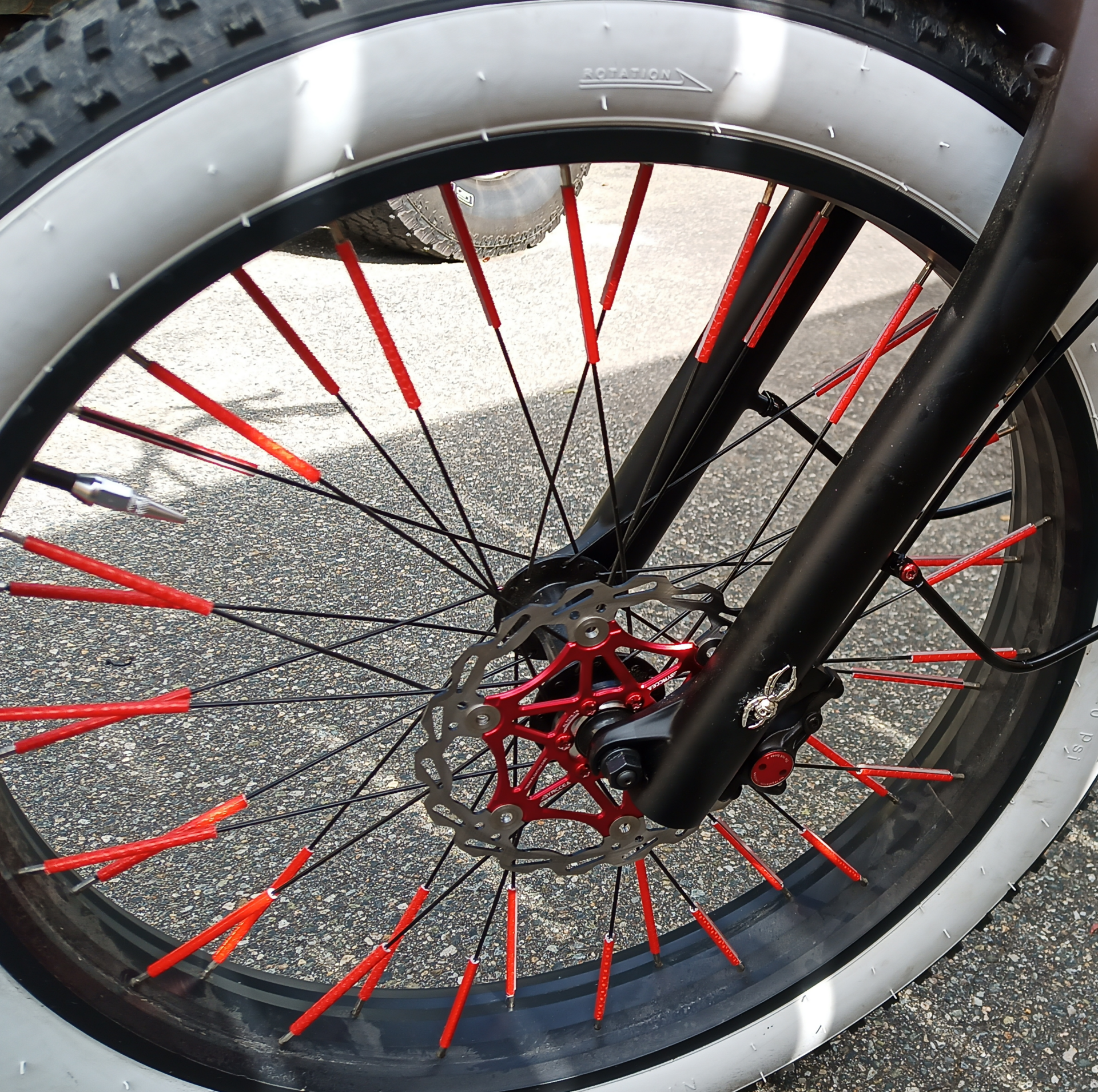Avg_Joe
Well-Known Member
- Region
- USA
- City
- RDU, NC
Pardon the ignorance, but my wife and I were discussing this after a recent ride. There's a 3/4 mile steep downhill section on part of my route and I have gotten up to 32mph just coasting down it. Wife is not a fan of speed, so I suggested she scrub off speed as we descended: coast, squeeze the brakes to slow down to ~10-12mph, coast, rinse, repeat. She said "I'll just use the brakes all the way down."
Admittedly I don't know a great deal about bicycle disk brakes, but I'm quite familiar with vehicle brakes. And in a car, it's not recommended to ride the brakes: rotors can get warped, brake fluid can heat up/boil. Use the transmission and engine braking to control speed on long descents. That's not an option on an ebike.
My question is: Does it even matter on an ebike?
Does riding the brakes pose a risk of warping the rotor? and on bikes with hydraulic disks, is there a risk of boiling the fluid? Any impact on pads?
(I searched here and came up with nothing, pardon me if my search-fu is weak.)
Admittedly I don't know a great deal about bicycle disk brakes, but I'm quite familiar with vehicle brakes. And in a car, it's not recommended to ride the brakes: rotors can get warped, brake fluid can heat up/boil. Use the transmission and engine braking to control speed on long descents. That's not an option on an ebike.
My question is: Does it even matter on an ebike?
Does riding the brakes pose a risk of warping the rotor? and on bikes with hydraulic disks, is there a risk of boiling the fluid? Any impact on pads?
(I searched here and came up with nothing, pardon me if my search-fu is weak.)



